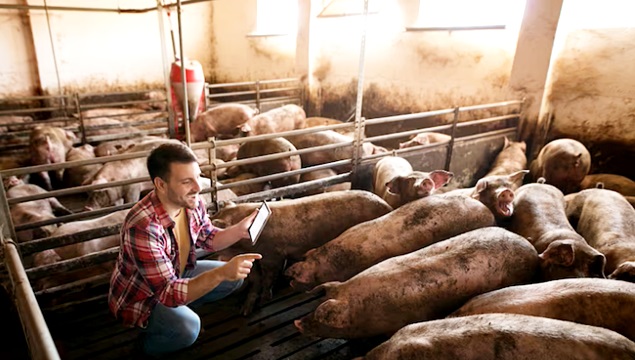
Improving insulin sensitivity can help mitigate the effects of heat stress on the metabolism and growth performance of pigs, according to a study cited by PigProgress.
Insulin and heat stress
Live yeast Saccharomyces cerevisiae boulardii CNCM I-1079 (Levucell SB) can help alleviate the effects of heat stress on pig performance and welfare. New research sheds light on some of the mechanisms of action of live yeast, particularly its effects on pig insulin sensitivity.
In pigs, heat stress induces increased glucose utilization, which is particularly important for the functioning of the immune system. Thus, heat stress causes a shift in the normal nutrient partitioning used for growth, resulting in reduced performance.
Activated immune cells become sensitive to insulin, while muscle and adipose cells become insulin resistant during heat challenge. This indicates that the effect of heat stress on fat deposition may be linked to an altered response to insulin.
Improving insulin sensitivity can help mitigate the effects of heat stress on metabolism and growth performance.
Improved insulin sensitivity
A new study was conducted using metabolic chambers to evaluate the effect of live yeast supplementation in heat-stressed finishing male pigs.
Researchers demonstrated that the improved resistance to heat stress in pigs fed live yeast could be attributed to their enhanced insulin sensitivity, as their insulin-to-glucose ratio was significantly lower during meals (Figure 1). This adaptation may contribute to higher energy efficiency during heat stress.
The improved insulin sensitivity can be explained by two main mechanisms of action of live yeast:
- Enhancing intestinal integrity during stress,
- Modulating the microbiota, leading to increased production of short-chain fatty acids in the intestine.
Improved thermoregulation
During heat stress, evaporative water loss through panting represents the main heat dissipation mechanism in pigs, and high temperatures increase pigs' water requirements.
Interestingly, the study conducted under controlled conditions also indicates increased water consumption, especially around mealtime, for pigs supplemented with Levucell SB.
This, in turn, enhanced the pigs' ability to dissipate more heat through water evaporation. As a result, the body temperature of the pigs decreased more rapidly after meals.





